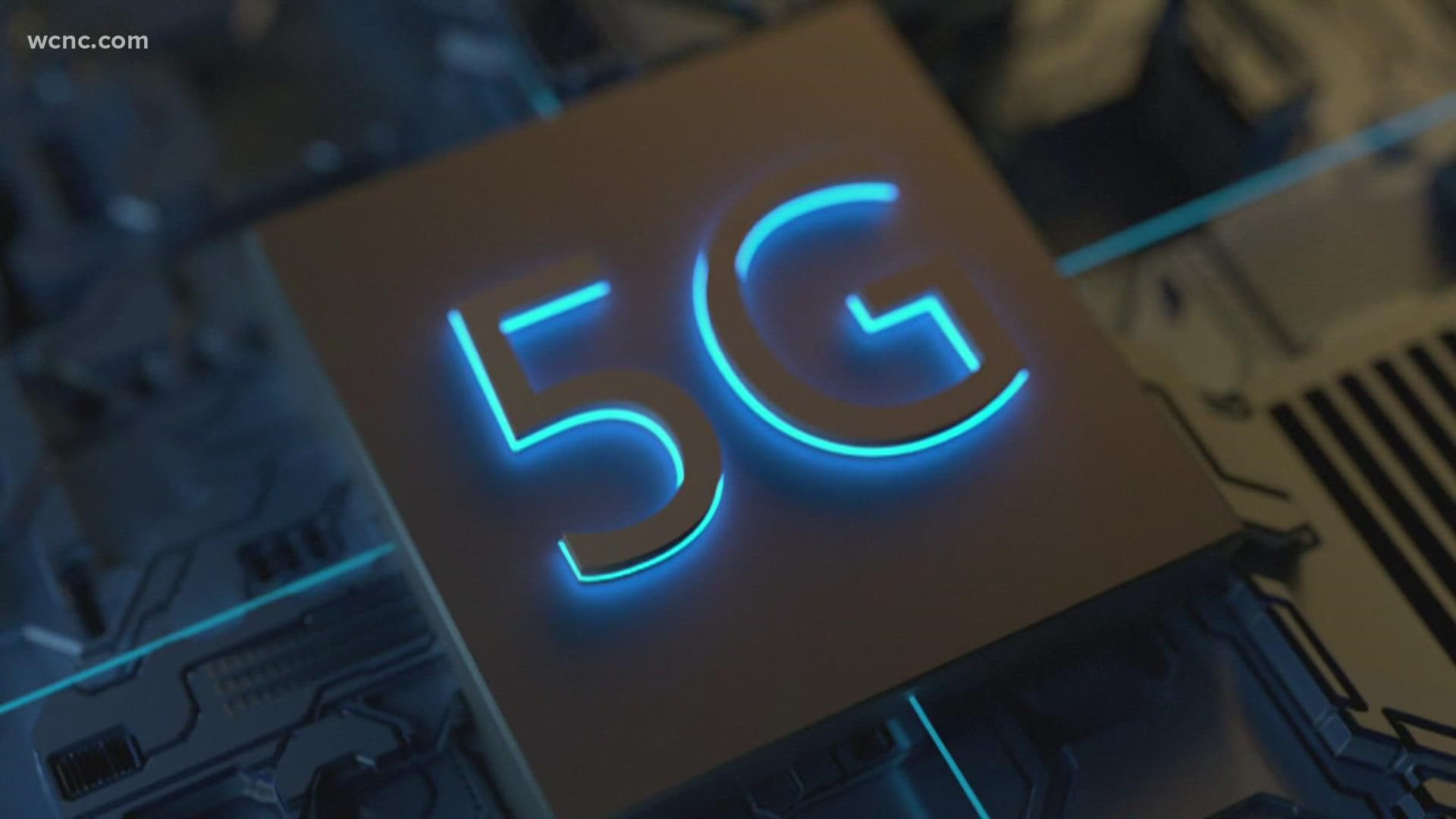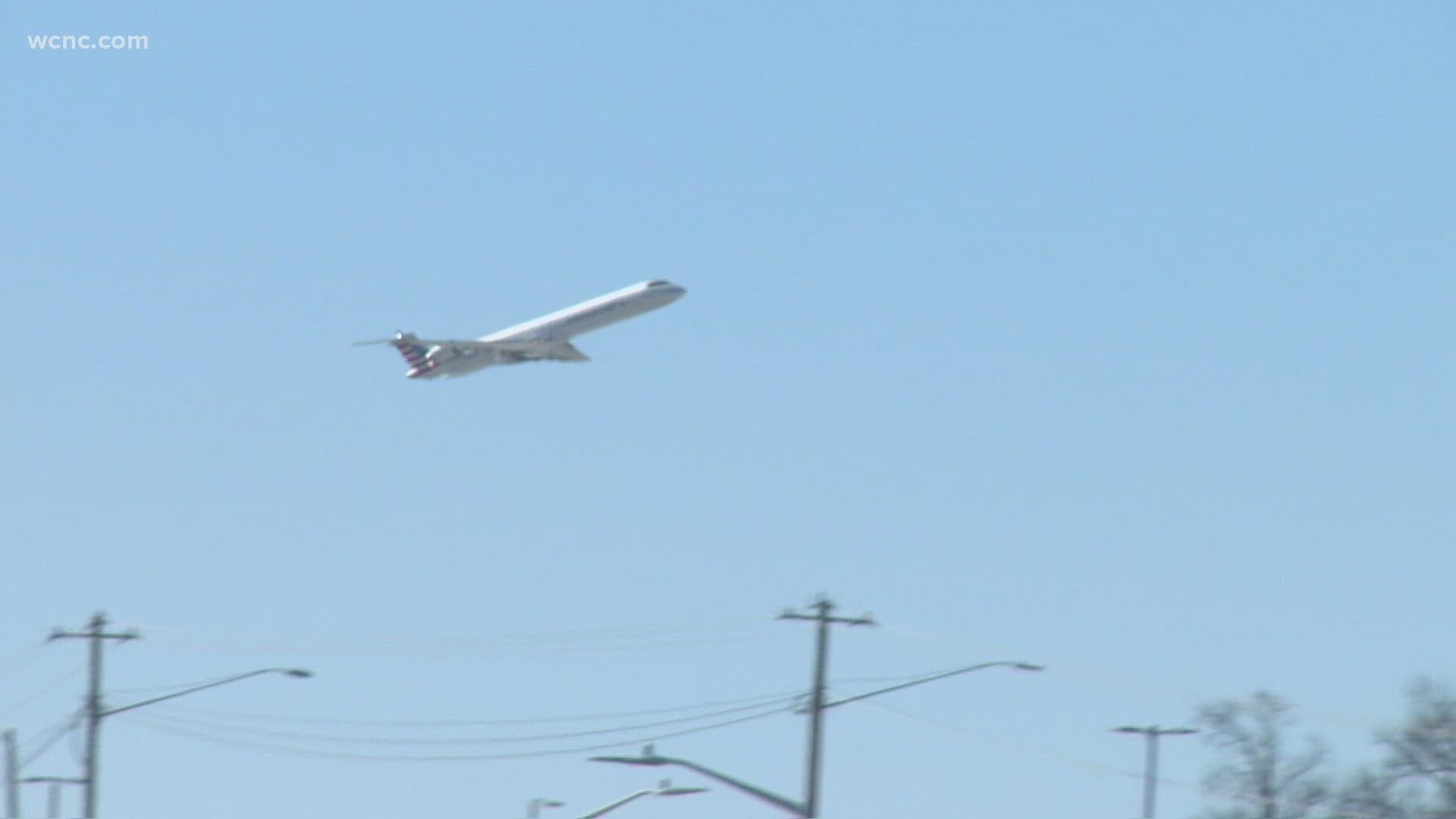CHARLOTTE, N.C. — Both AT&T and Verizon announced Tuesday they will temporarily limit the 5G network around airports. This comes after major concerns from the FAA, airline officials, and the White House that the 5G towers in close proximity to airports could interfere with important aircraft equipment.
"This is not safe,” Dennis Tajer, spokesman for the Allied Pilots Association, said. "That signal will be bombarding my airplane with interference.”
Tajer said the 5G network operates on a similar frequency as a crucial instrument called radio altimeters, which provide critical information to safety and navigation systems in modern airplanes. Tajer said it is particularly important during inclement weather and at night.
“The interference may happen so quickly that a pilot may not have time to react and continue safe flight, to include a landing,” Tajer said.
Several airlines and shipping companies sent out a joint statement urging cell companies to limit the 5G network within two miles of airport runways.
RELATED: Yes, 5G can interfere with airplanes, but it’s unclear whether it will cause ‘harmful interference’
"There are hundreds, if not thousands of flights that could potentially be canceled as this sort of stare-down over the 5G rollout continues,” Scott Keyes, founder of Scott's Cheap Flights, said.
When announcing they would delay the rollout of 5G near airports, AT&T and Verizon criticized the FAA for not resolving how to navigate the 5G network around our airports without disrupting aircraft.
“They legally purchased this section of the spectrum years ago for billions and billions of dollars," Keyes said. "This was not a secret, and so from the telecoms' perspective, the airlines and FAA really were sitting on their hands not preparing for this day to come.”
Keyes said airlines and the FAA now want time to do more testing to ensure flying remains safe.
"This is something the White House is working really closely on to try to resolve because they know how important an issue this is," Keyes said.
Keyes noted the cell companies didn’t specify how long the delay would be and that they did it voluntarily so they presumably have the power to turn it on at will.
Still, the FAA released a statement on behalf of the U.S. Transportation Secretary Pete Buttigieg, saying: "We recognize the economic importance of expanding 5G, and we appreciate the wireless companies working with us to protect the flying public and the country’s supply chain. The complex U.S. airspace leads the world in safety because of our high standards for aviation, and we will maintain this commitment as wireless companies deploy 5G."
By Wednesday, Airlines for America, which represents multiple airlines and shipping companies, released a statement saying the agreements the White House reached with AT&T and Verizon yesterday averted catastrophic disruptions to travel and shipping, allowing thousands of flights to take off.
“We haven’t seen a huge impact on the number of flights canceled, but the threat is still there,” Keyes said.
Keyes said multiple international airlines and some larger domestic airports and airplanes were still forced to cancel flights on Wednesday
"All because the FAA had not given their blessing to say that these were safe to land at those airports with that aircraft,” Keyes said.
Keyes said the question now is: where does the matter go from here?
“Are we able to upgrade the equipment to diminish the impact of the new 5G towers and if so, who’s going to pay for it?” he questioned.
Keyes noted if an agreement isn’t made, the cell companies could turn the 5G towers on at will. That could lead the FAA to prohibit all planes they don’t feel can always land safely.
“That’s the worst-case scenario and that could result in a really significant number of cancelations, hundreds if not thousands per day,” Keyes said.
Keyes said the cell companies, aviation officials, and the White House are now working on how to prevent that worst-case scenario. In the meantime, the FAA said flights at some airports may still be affected as they work to determine how 5G is impacting these altimeters.
Contact Lana Harris at lharris@wcnc.com and follow her on Facebook, Twitter and on Instagram.


